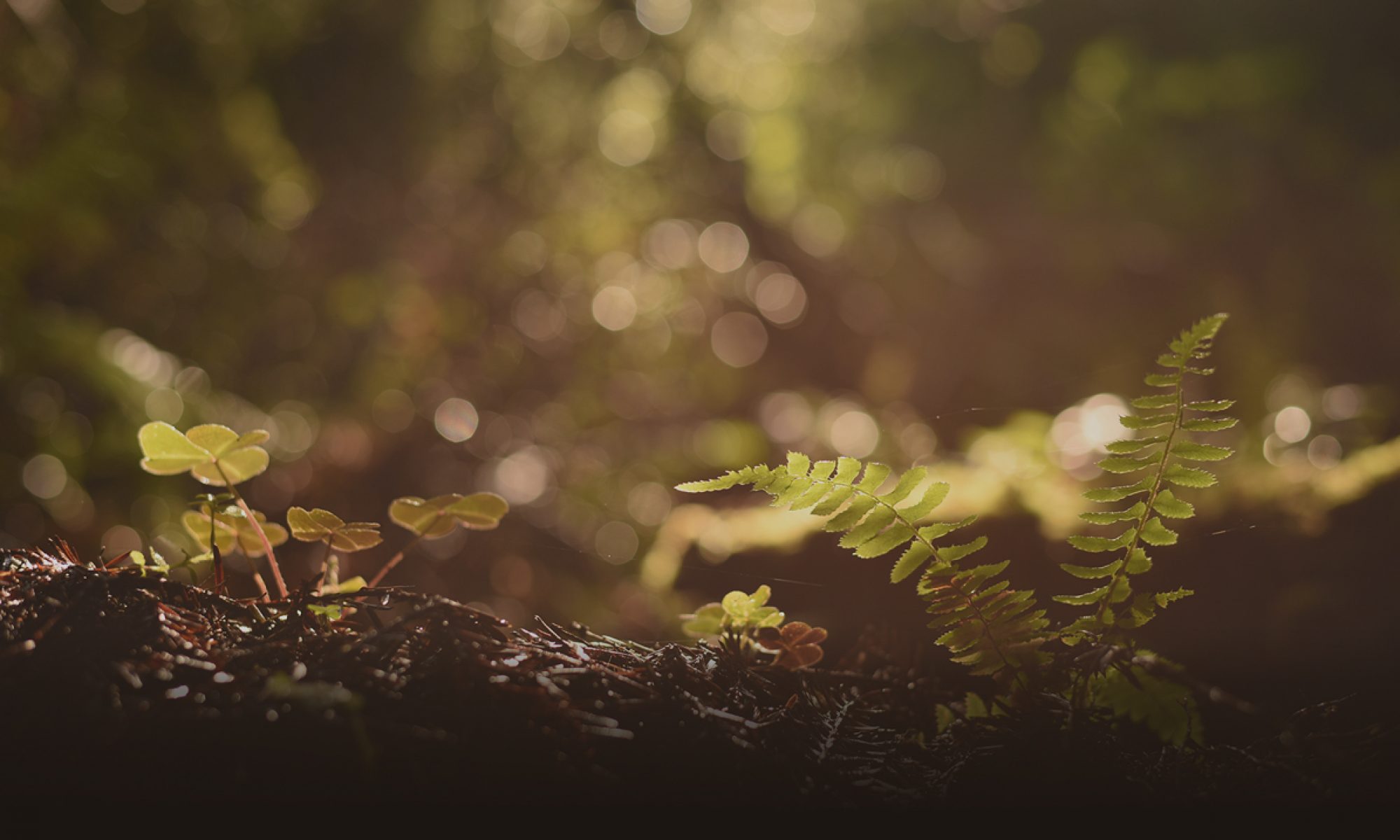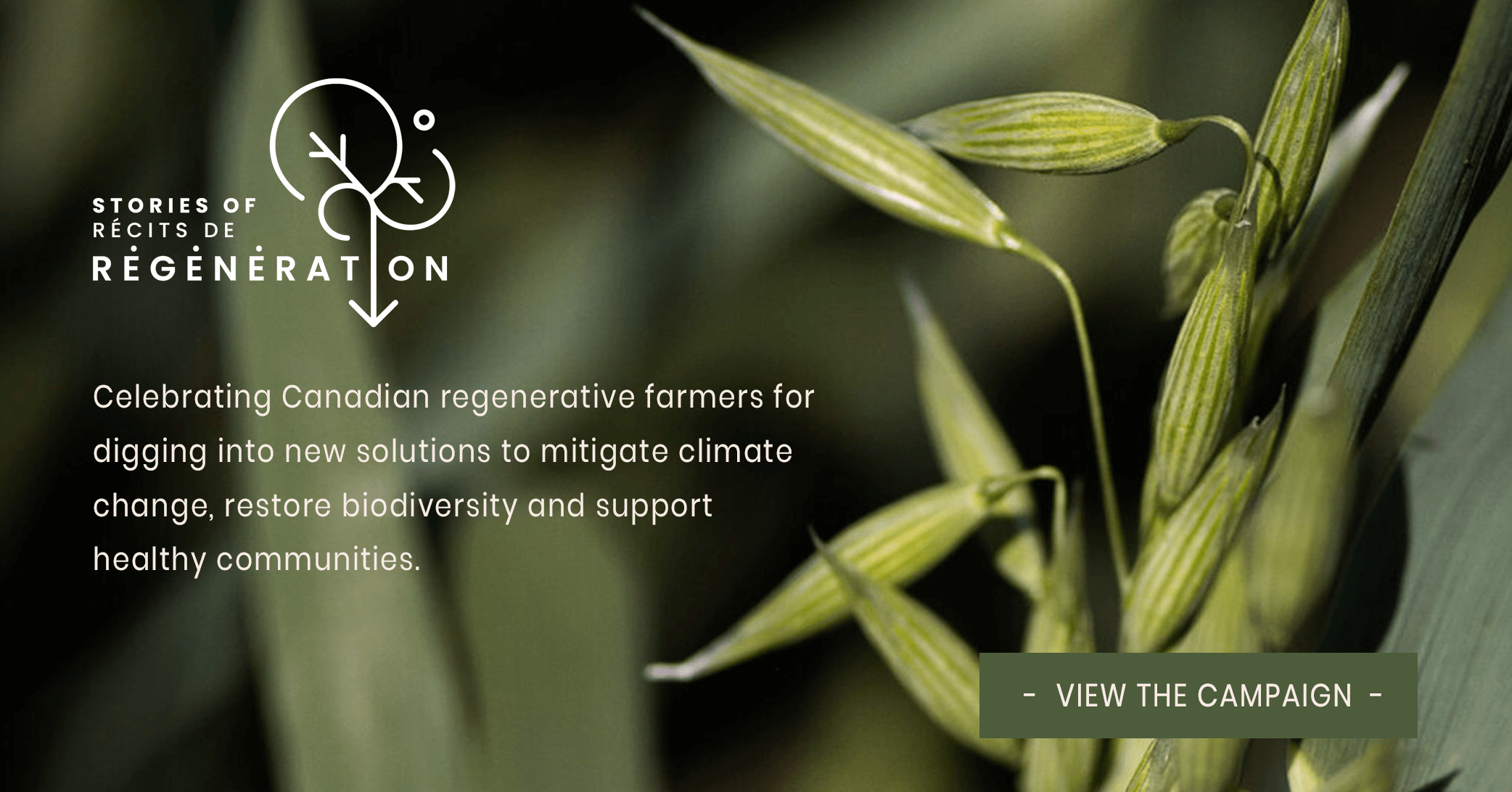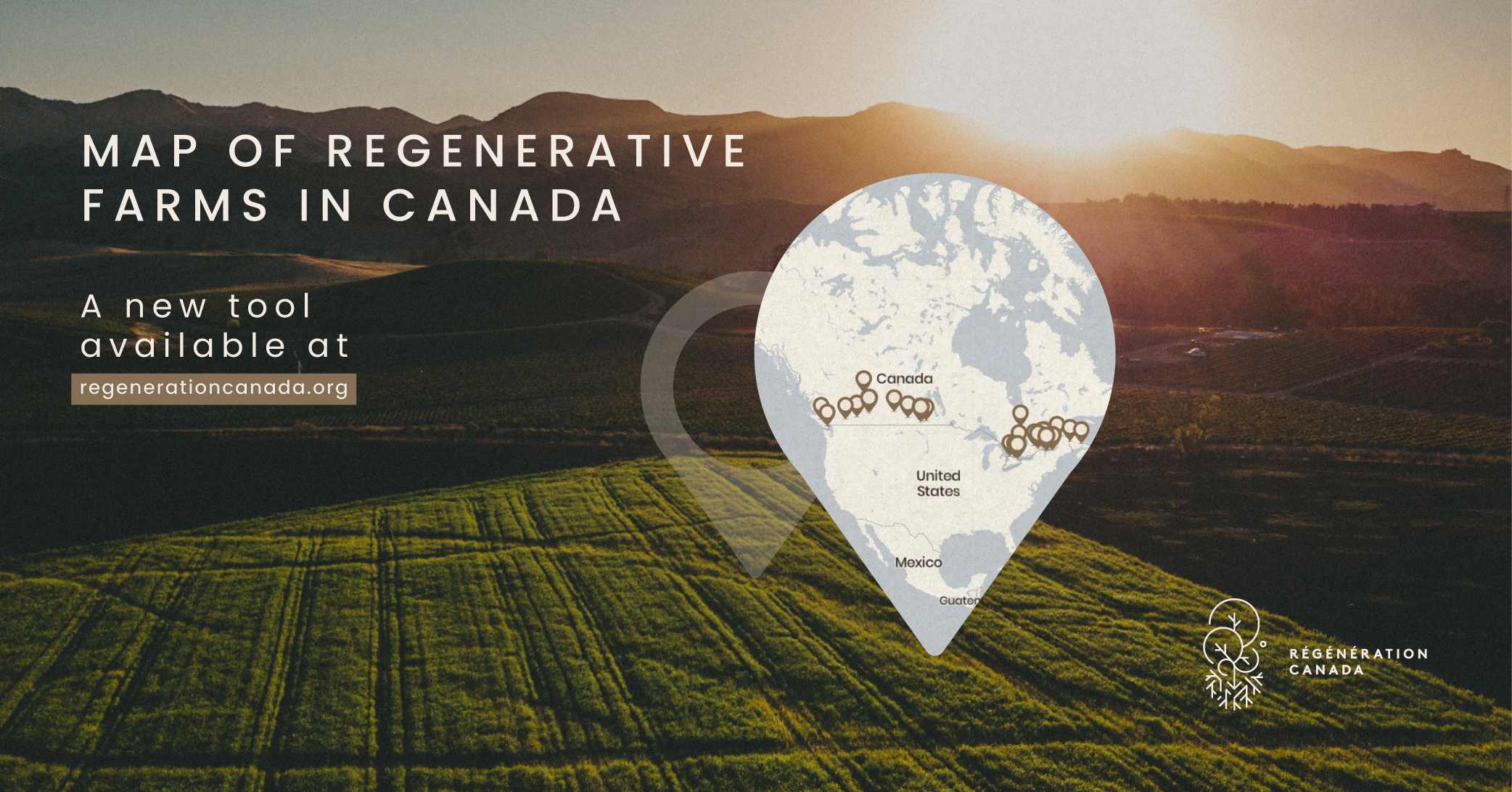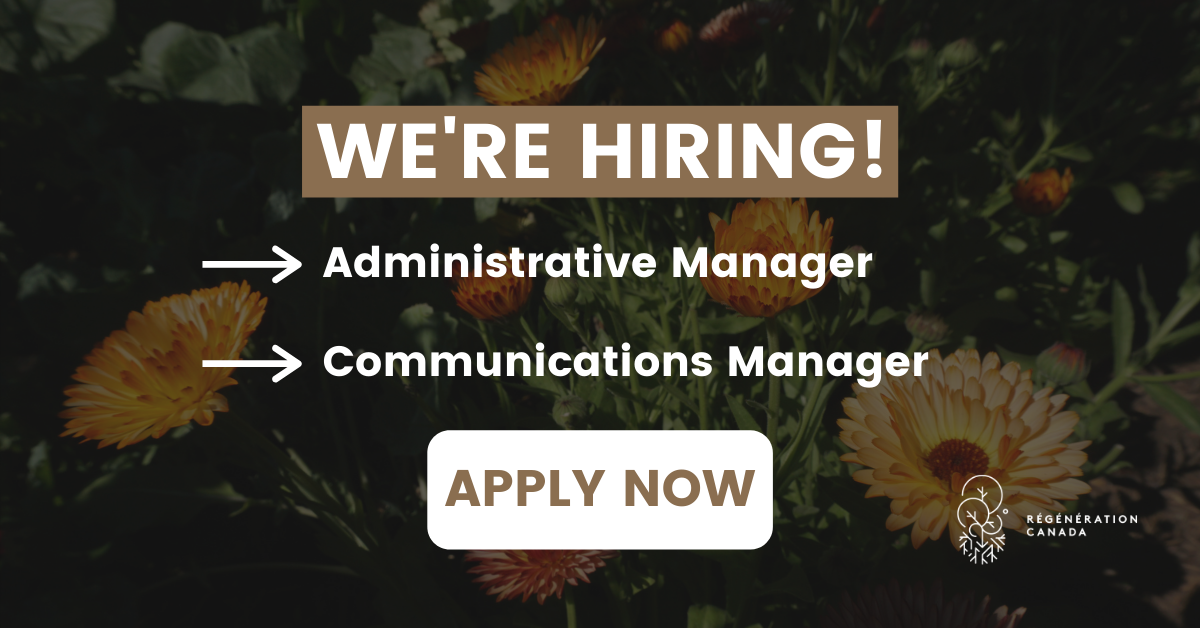A truly regenerative agricultural system encompasses not only healthy ecosystems but healthy communities––from providing fair labour conditions at the farm to offering nutritious ingredients for individuals and families. A regenerative food system should reflect the diversity and richness of people, place, and nature.
With this webinar, learn more about food, community and culture from farmer Sun Shan from Chi Garden and speaker Emily Morris from Plenty Canada. In this conversation, we explored the relationships between food sovereignty, regenerative agriculture, biodiversity conservation, and community building and how the speakers put these concepts into practice. We then looked at how growing culturally significant crops and reconnecting with land through plants can empower our communities. The discussion was facilitated by Angel Beyde, of the EFAO. Watch the recording below:
About the farmer:
Sun Shan was born in Beijing, China, and now lives in Ottawa, where she is an urban farmer and educator with a vast biology and ecology background. In 2015, Sun Shan founded Chi Garden with her partner, bringing to the field over 20 years of experience working as a biomedical researcher, conservation biologist, non-profit leader, sustainability educator, and cultural/community interpreter. Her small ecological farm is cultivated as a place for diverse vegetables and herbs, community conversations around food, and connected traditions. Sun Shan is a member of the National Farmers Union (NFU) and its BIPOC group and is an organizer for the East Asia Earth Village, where a diaspora of producers and creators from East Asia connect and co-create.
– Learn more –
About the speaker:
Emily Morris is the Operations and Environment Programs Manager at Plenty Canada, a non-profit organization that works to unite Indigenous and Western knowledge systems through the frameworks of Ethical Space and Two-Eyed Seeing, using both knowledge systems to protect the natural world and solve problems for the benefit of all. Emily comes from a French and Irish heritage and grew up mainly on the Algonquin and Mohawk territories, now known as Eastern Ontario. Her background is in environmental science and conservation, and she has been part of the ‘Healing Place’ project for almost three years.
About the moderator:
Angel Beyde’s love for the natural world and growing food is equalled only by her joy in feeding people and community-building. Over the past two decades, Angel’s work has spanned the for-profit and non-profit sectors in education, urban agriculture, regenerative landscaping, social enterprise and mental health.
As a Director at Ecological Farmers Association of Ontario, Angel’s work focuses on building strategic partnerships and supporting organizational governance and transformation through an anti-oppression and equity lens. This includes founding and leading the Land Access Coalition as well as the EFAO Farmers Network for Black, Indigenous and People of colour, which has over 150 members.
Through Angel’s work as Peace Garden Consulting, she offers organizations support in strategic visioning & planning, leadership coaching and team-building, as well as board and stakeholder training in equity, diversity and belonging. Angel has had the honour to consult with dozens of farming and environmental organizations across the country and has served in an advisory capacity for Farmers for Climate Solutions, Fair Finance Fund, Regeneration Canada, Project Swallowtail, Toronto Metropolitan University, Pollinator Partnership and Canadian Agricultural Human Resources Council, among others.
Angel is the grateful steward of a small farm in Eastern Ontario, in Crawford purchase territory.
About the campaign:
This is the concluding webinar of the 6-part series developed for the Stories of Regeneration campaign. The campaign aims to enhance public awareness around regenerative agriculture practices and how farmers contribute to combating climate change while guaranteeing a healthy food system for all.
The session is free to attend live and will be available to watch later, along with the previous events, which you can now find on the Stories of Regeneration webpage.
Also keep an eye out for the podcast episodes, short films, and blog posts that we’re progressively releasing!





